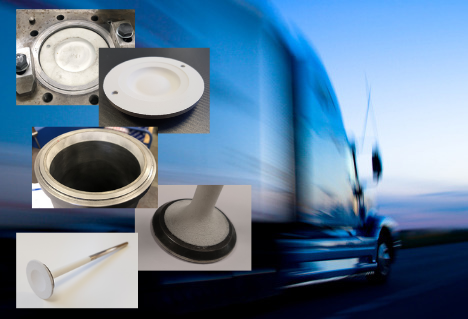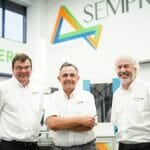After keeping things under wraps for nine months, world leading heat management specialists, Zircotec is proud to announce their involvement with Dolphin N2, now owned by FPT Industrial, and Brighton University, on an exciting and ground-breaking project to develop a new internal combustion engine that has the potential to transform the commercial powertrain market, with its near zero emissions.
Zircotec provide cutting edge thermal coatings and precision, ceramically coated components, along with its patented encapsulated heatshields that meet the very high demands of this recuperated split-cycle, next generation engine.
Graeme Barette, sales and marketing director said: “We’re really proud to be involved with this ground-breaking project and to be part of the carbon-zero engine revolution. This is a massive project for us to be involved in and our involvement demonstrates the trust we have earnt over many years working with some of the biggest automotive performance brands.
“This technology is perfect for long-haul trucks, agricultural vehicles, self-powered railway traction and even ships – engines that are, at present, not suitable for battery-electric propulsion. We’re seeing the electrification of personal vehicles, but for something like a long-haul truck or ships, they would lose a chunk of their cargo space to house the batteries required to propel them and that makes the electrification of these unviable.”
Two versions of the recuperated split-cycle engine are being developed, called ThermoPower and CryoPower. Likely to run on diesel at first, the new technology is expected to significantly reduce the amount of fuel consumed. The new collaborative project, called RE-ARMD (Recuperated Engine – Advanced Route to Market Demonstrator) will demonstrate that it can also run on carbon-free hydrogen fuel.
The engine separates the “cold” and “hot” parts of the traditional internal combustion engine (ICE). A first set of cylinders draw in air and compresses it – in the CryoPower version, liquid nitrogen is injected at a temperature of almost -200oC to keep this process cool for maximum efficiency; the simpler ThermoPower omits the use of liquid nitrogen and uses water. Then the compressed air passes through a recuperator, where the engine’s exhaust heats it up – saving fuel which normally has to do this. The air now passes to the second, hot cylinder set, which are thoroughly insulated – unfeasible in a normal ICE where the same cylinder handles hot and cold processes.
The Zircotec coatings massively reduce the temperatures in the areas of the engine where heat is not wanted, reducing heat transfer, keeping the heat in the hot part of the engine. Through the retention of heat in the combustion cycle, significantly less energy is lost through the cooling system, thus a high-performance efficiency is produced. The heavy duty thermal propulsion system offers fuel-cell levels of efficiency (55% Brake Thermal Efficiency) and near-zero emissions (5% EuVI NOx).
Dolphin N2 Technical Director, Nick Owen, said: “Zircotec are a critical partner in this pioneering collaborative project. They are a trusted company with world-leading expertise in automotive heat management. They have experience working with some of the biggest names in motorsport. This experience is invaluable when seeking to develop an engine that can operate at its maximum efficiency.”
The recuperated split cycle engine is relatively low cost and easy to manufacture. It aims to compete with zero emission drivetrains, targeting long haul trucks (where zero-emission technology is least easy to apply), 0.5-50MW distributed power generation (an area seeing rapid growth to reinforce electricity grids and balance out intermittent renewables), and mixed-mode rail. It can potentially do this with the efficiency of the largest power stations, and air quality somewhere between SULEV (Super Ultra Low Emissions Vehicle) standard (1/20 of Euro VI), and zero-impact (meaning emissions cannot be detected or are cleaner than the surrounding air).
Barette added: “Our high-end simulation capabilities are being exploited to overcome the enormous thermal challenges faced in reaching such superior performance. Working with commercial and university project partners, this development phase is poised to deliver a running demonstrator engine delivering the next-gen performance levels. Our engineering team will also be focusing on process technologies, refinements and automation to prepare for vehicle integration.”
The prototype engine is on its third iteration. Development successes to date have attracted funding from Innovate UK, and now from the Advanced Propulsion Centre, under the Advanced Route to Market Demonstrator (ARMD) competition.
The ‘Core Competitions’ run by the Advanced Propulsion Centre are a £1 billion commitment from Government and industry to accelerate the development of low carbon technology from research to the point of commercialisation here in the UK, safeguarding and creating jobs and attracting foreign direct investment.
Head of Competitions and Projects from the Advanced Propulsion Centre, Zoe Hall said: “The Advanced Route to Market Demonstrator (ARMD) competition has been a great success and we’re delighted to support these aspirational projects, which will help contribute to a thriving future in UK Industry. The whole process, along with the review of so many applications, has proved extremely beneficial in showcasing the continued demand for R&D support in this space.”





